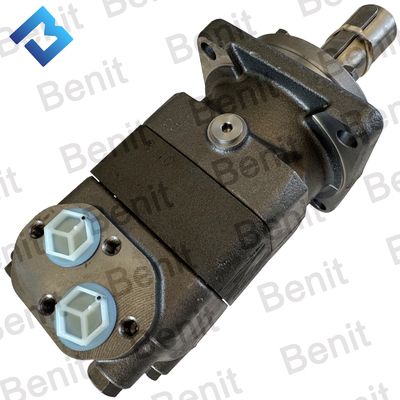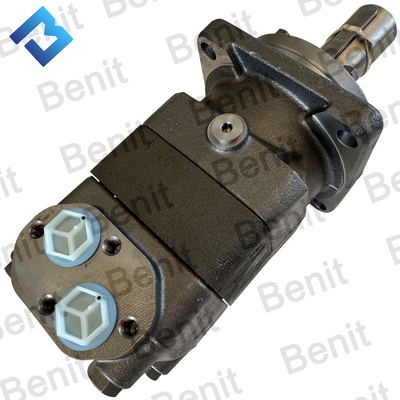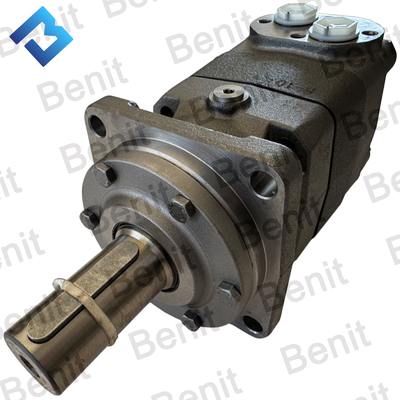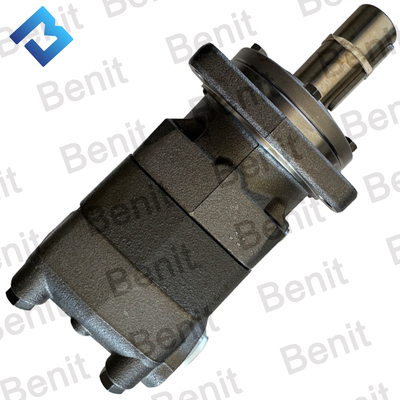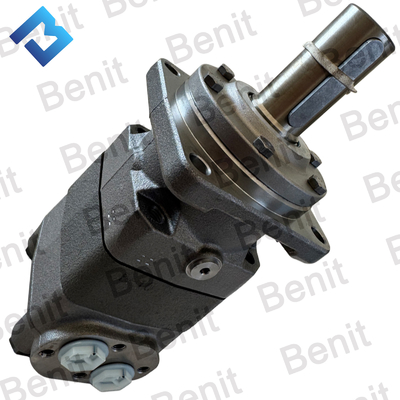
The Scraper Hydraulic Motor (Part No. RM13976576) is a high-efficiency hydraulic drive component designed specifically for road rollers, ensuring reliable and consistent scraper blade operation. This motor plays a crucial role in maintaining drum cleanliness, enhancing compaction quality, and prolonging the lifespan of road construction equipment. Engineered for durability and precision, it delivers smooth power transmission, making it an indispensable part of modern road compaction machinery.
Key Features and Benefits
1. Precision-Engineered Hydraulic Performance
The RM13976576 Scraper Hydraulic Motor is designed to convert hydraulic pressure into controlled mechanical motion, driving the scraper blade with optimal force. Its advanced hydraulic system ensures smooth and responsive operation, allowing for precise adjustments in speed and torque to match varying job site conditions.
2. Heavy-Duty Construction for Longevity
Built with high-strength materials and reinforced internal components, this hydraulic motor withstands the rigorous demands of road compaction. It resists wear, shock loads, and continuous operation, ensuring minimal downtime and extended service life even in harsh construction environments.
3. Enhanced Debris Removal for Superior Compaction
A clean roller drum is essential for achieving uniform pavement density. The RM13976576 motor powers the scraper blade effectively, preventing material buildup on the drum surface. This results in smoother asphalt finishes, reduced roller slippage, and improved overall compaction quality.
4. Seamless Compatibility with Road Rollers
This hydraulic motor is designed for easy integration with various road roller models, including single-drum, tandem, and pneumatic rollers. Its standardized mounting and connection design make it a versatile replacement part for multiple equipment brands, ensuring broad applicability.
5. Low Maintenance & Reliable Operation
Hydraulic motors are known for their durability and minimal maintenance requirements. The RM13976576 features high-quality seals and bearings, reducing the risk of leaks and mechanical failures. Routine hydraulic fluid checks and occasional seal inspections are typically all that’s needed to maintain peak performance.
6. Weather & Environmental Resistance
Road construction often takes place in extreme conditions—whether under scorching heat, heavy rain, or freezing temperatures. This motor is designed to perform reliably in diverse climates, resisting moisture, dust, and thermal fluctuations without compromising efficiency.
7. Quiet & Efficient Power Delivery
Unlike mechanical or electric alternatives, hydraulic motors operate with reduced noise levels, contributing to a more comfortable working environment—especially in urban construction zones where noise regulations may apply.
Applications in Road Construction & Beyond
The Scraper Hydraulic Motor (RM13976576) is essential for:
-
Asphalt Compaction: Ensures a debris-free drum for smooth, high-quality pavement.
-
Soil & Gravel Compaction: Prevents material adhesion, improving compaction efficiency.
-
Highway Maintenance: Keeps rollers clean during resurfacing and repair work.
-
Industrial & Landfill Compaction: Used in waste management and large-scale compaction projects.
Why Choose This Hydraulic Motor?
-
Superior Durability: Outlasts conventional motors with robust construction.
-
Consistent Performance: Delivers reliable power for uninterrupted operation.
-
Easy Integration: Compatible with multiple road roller models.
-
Cost-Effective Maintenance: Reduces repair frequency and operational downtime.
Conclusion
The Scraper Hydraulic Motor (RM13976576) is a high-performance component that enhances the efficiency and longevity of road rollers. Its precision engineering, durability, and low-maintenance design make it an excellent investment for construction professionals seeking reliable compaction equipment performance.
For optimal results, ensure proper hydraulic fluid levels and periodic inspections to maintain peak motor efficiency. This motor is a key contributor to smoother roads, reduced project delays, and long-term cost savings in road construction and maintenance operations.

 Your message must be between 20-3,000 characters!
Your message must be between 20-3,000 characters! Please check your E-mail!
Please check your E-mail!  Your message must be between 20-3,000 characters!
Your message must be between 20-3,000 characters! Please check your E-mail!
Please check your E-mail! 
